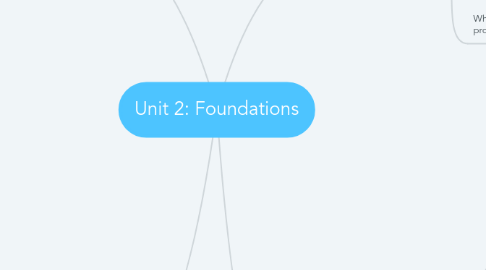
1. Universal Design
1.1. The idea of Universal Design for Learning revolves around creating a learning environment for all students
1.1.1. The 3 Principles of UDL are:
1.1.1.1. Representation
1.1.1.2. Action & Expression
1.1.1.3. Engagement
1.1.2. The 3 Primary Networks of UDL are:
1.1.2.1. Recognition Learning
1.1.2.2. Strategic Learning
1.1.2.3. Affective Learning
2. Digital Citizenship
2.1. A way of thinking, acting, and being online
2.1.1. There are 9 elements of Digital Citizenship
2.1.1.1. Access
2.1.1.2. Commerce
2.1.1.3. Communication & Collaboration
2.1.1.4. Fluency & Literacy
2.1.1.5. Etiquette
2.1.1.6. Law
2.1.1.7. Health & Welfare
2.1.1.8. Rights & Responsibility
2.1.1.9. Security & Privacy
2.1.2. Includes the S3 Framework, which reinforces the elements of Digital Citizenship
2.1.2.1. Safety
2.1.2.2. Savvy
2.1.2.3. Social
2.1.3. Digital Citizenship is so important today since the digital world has become a major aspect of our lives today, and is even being used in schools for learning management systems
3. Copyright
3.1. It is the intellectual property of the creator, under the protection of the constitution.
3.2. Key Concepts include Plaigiarism and Copyright Infringement
3.2.1. Plaigiarism is when you take someones work without saying where you got it from
3.2.2. Copyright Infringement is when you take someones work without permission
3.3. What is protected and what is not protected
3.3.1. Protected: music, books, art, screenplays, podcasts
3.3.2. Not Protected: ideas, facts, work from the government, works whose copyright have expired
4. Theoretical Foundations
4.1. Behaviorism
4.1.1. Theory that focuses on observable behaviors and claims that conditioning is the universal learning process
4.2. Cognitivism
4.2.1. Tries to explain the processes inside the brain.
4.2.1.1. Bloom's Taxonomy features the belief that there are 3 learning domains
4.2.1.1.1. Cognitive
4.2.1.1.2. Affective
4.2.1.1.3. Psychomotor
4.3. Constructivism
4.3.1. Philosophy of learning; claims that individuals form their own understanding of the world we live in
4.3.1.1. There are many constructivist models of instructional design. Some of these are:
4.3.1.1.1. Problem-Based Learning
4.3.1.1.2. Inquiry Learning
4.3.1.1.3. Engaged Learning
4.3.1.1.4. Discovery Learning
4.3.1.1.5. Case-based Learning
